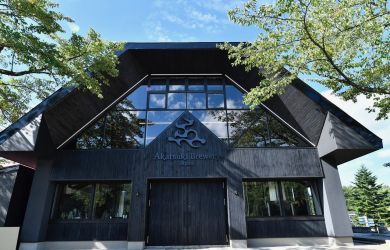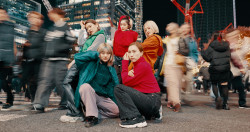
February 4, 2010
JEN
A Tokyo-based NGO provides disaster relief—and builds communities—around the world
By Metropolis
Originally published on metropolis.co.jp on February 2010

Photo courtesy of JEN
The earthquake in Haiti reminds us of the challenges and dangers faced by aid groups. For a few weeks or months after disaster strikes, their courageous efforts to provide basic provisions and medical support are readily visible. Yet long-term rebuilding efforts often happen outside the media spotlight.
That’s why the work of organizations like JEN is so vital. Founded in 1994 as a union of Japanese NGOs, JEN focuses on programs like emergency assistance and infrastructure rebuilding, but also supporting education and other social needs. The group has been active in countries as diverse as Chechnya, Mongolia, Myanmar and Serbia and Montenegro. Domestically, it has ongoing programs in Niigata.
According to spokeswoman Miyako Hamasaka, JEN involves itself in relief and recovery efforts with three principles in mind: all projects must be sustainable; all projects must be maintained locally; and there must be community commitment.
Education is one area that often suffers in the aftermath of natural disasters and other social disruptions. Realizing that school programs play a central role in establishing a community’s future stability, JEN makes education rebuilding and development a top priority. Three countries where the NGO is currently active are Afghanistan, Iraq and Sudan, which all face challenges due to war and poverty.
JEN’s involvement in Afghanistan dates back to 2002, and focuses on a program called the School Rehabilitation Project. Working with local community leaders, residents and teachers, the NGO has established School Management Committees to assess priorities in rehabilitation and construction, and to create not only local ownership and commitment, but also to impart a better understanding of the value of education.

Photo courtesy of JEN
The war in Iraq has made the already decrepit school conditions there worse, particularly primary schools in the poorer areas of Baghdad. In 2003, JEN started working with UNICEF and the Iraqi Ministry of Education to help in reconstruction efforts, focusing on sanitation systems to ensure a safe and hygienic learning environment. “JEN has built more than 100 schools in Baghdad,” Hamasaka says. “In the second half of 2009, efforts were expanded beyond Baghdad, as so many are in need.”
As part of its focus on “forgotten peoples and regions,” JEN has developed a number of health and education projects in Sudan. Working in partnership with the Sudanese Ministry of Education, JEN selects specific schools to support the development of drinking wells, water pumps and drainage gutters. Hygiene education in schools and workshops for the general community have an impact by lowering the rate of waterborne diseases.
Unlike most international Japanese NGOs, JEN makes it easy to get involved. Monthly volunteer orientation meetings are held for those who want to donate their time to the group’s various projects. JEN has also collaborated with used-bookstore chain Book Off on a project called Book Magic, which has raised ¥11.5 million for school projects in Sudan, Pakistan and Afghanistan. Donations of books, CDs and DVDs are made through JEN, then Book Off sells them and contributes the funds.
For a more hands-on experience, volunteers can join JEN’s community development project in Niigata. The program was developed to help elderly farmers still suffering from the 2004 Niigata earthquake. Activities vary by season—snow removal in winter, rice planting in spring—but hard work is mixed with fun as participants meet with elders in the community.
JEN’s next volunteer orientation session will be held on Saturday, February 20, from 10:30am-12:30pm at JEN’s headquarters in Iidabashi. 7F, 2-16 Agebacho, Shinjuku-ku. Nearest stn: Iidabashi. Sign up by email to info@jen-npo.org. For more information about JEN, see www.jen-npo.org (English, French and Japanese). For more information about Book Magic, see www.jen-npo.org/bookmagic (Japanese).
Sarajean Rossitto is a Tokyo-based independent consultant working on nonprofit NGO capacity development: http://sarajeanr.wordpress.com. Get information about events, volunteer opportunities and nonprofit organizations on the Tokyo Community News blog: http://tokyo-community-news.blogspot.com.







